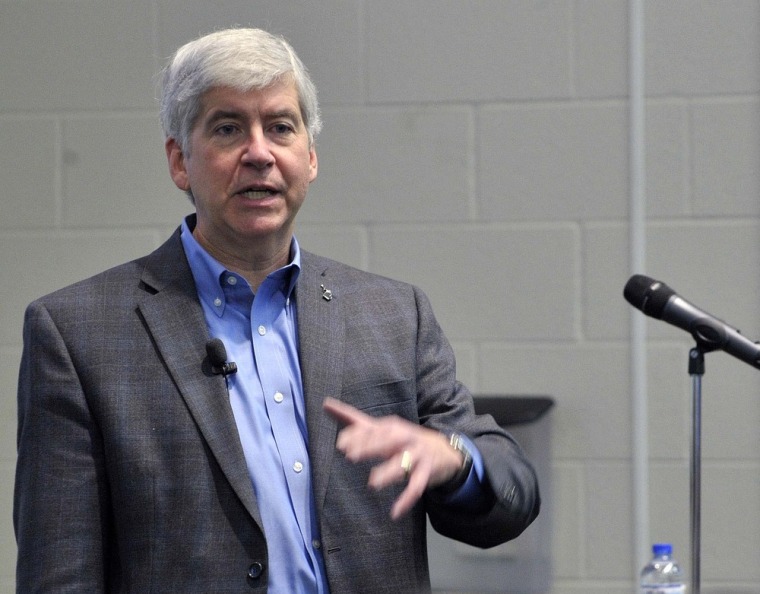The Republican plan to rig the Electoral College in their favor may be a non-starter in Virginia. But that doesn’t mean the party’s giving up on the idea everywhere. And Michigan may be shaping up as the next place where they’ll try it.
State Rep. Pete Lund said recently he plans to introduce a bill this session under which Michigan would allocate its 16 electoral votes according to the popular vote winner in each of 14 congressional districts. The remaining two votes would go to whoever got more votes statewide. Had that system been in effect last November, Mitt Romney likely would have received more electoral votes than President Obama, despite losing the popular vote by nearly 10 points in the state.
Lund, a Republican, first introduced the bill in 2012 soon after the GOP took control of state government. Lund told The Detroit News last week that it failed because Republicans expected Mitt Romney to win Michigan, meaning the shift would have taken electoral votes away from him.
Of course, now that Obama has won the state comfortably, Michigan Republicans appear much warmer to the plan.
Gov. Rick Snyder, said recently he’s open to the idea—a stance his office reiterated Friday.
“He could go either way,” Kurt Weiss, a spokesman for Snyder told msnbc.com. “He thinks it would be a good, thoughtful discussion.”
Snyder has shown before that he’s willing to serve the GOP’s partisan interests. Last year he signed a controversial bill designed to weaken organized labor—a key part of the Democratic coalition—after previously saying he opposed it.
And House Speaker Jase Bolger is firmly on board.
"I hear that more and more from our citizens in various parts of the state of Michigan that they don't feel like their vote for president counts because another area of the state may dominate that or could sway their vote," Bolger told a Michigan political news service. "They feel closer to voting for their congressman or their congresswoman and if that vote coincided with their vote for president they would feel better about that."
State Senate Leader Randy Richardville, also a Republican, did not respond to a request for comment from msnbc.com about where he stands on the issue.
Michigan Democrats have scathing criticism for the idea. "This is nothing more than election-rigging," state party chair Mark Brewer told the AP.
Until recently, Virginia had appeared to be the state where the vote-rigging scheme was most advanced. A bill similar to Lund’s passed a Virginia Senate subcommittee last week on a party-line vote. But on Friday, a spokesman for Gov. Bob McDonnell said the governor opposed the idea, and two Republican state senators also came out against it—making the idea a non-starter in Old Dominion, at least for now.
The move might have been illegal in Virginia, voting-rights experts told msnbc.com Friday. Under Section 5 of the Voting Rights Act, most southern states are required to get federal approval before making changes to their voting systems, to ensure the move doesn’t reduce the voting power of minorities. Awarding electoral votes on the basis of congressional districts would appear to do that, since African-American voters tend to be clustered in large numbers into a smaller number of districts.
But non-southern states like Michigan have much more leeway to make such changes. Experts said it was conceivable that the change could be challenged under Section 2 of the Voting Rights Act, which prohibits deliberate racial discrimination. But that’s a much higher standard for opponents of the law to meet.
Republicans in Ohio, Pennsylvania, and Wisconsin also have expressed interest in the scheme.
Late Update, 1/29 3:33pm: Richardville, the Senate leader, says he's against the idea. "I don't know that it's broken so I don't know that I want to fix it," he told The Detroit News.
